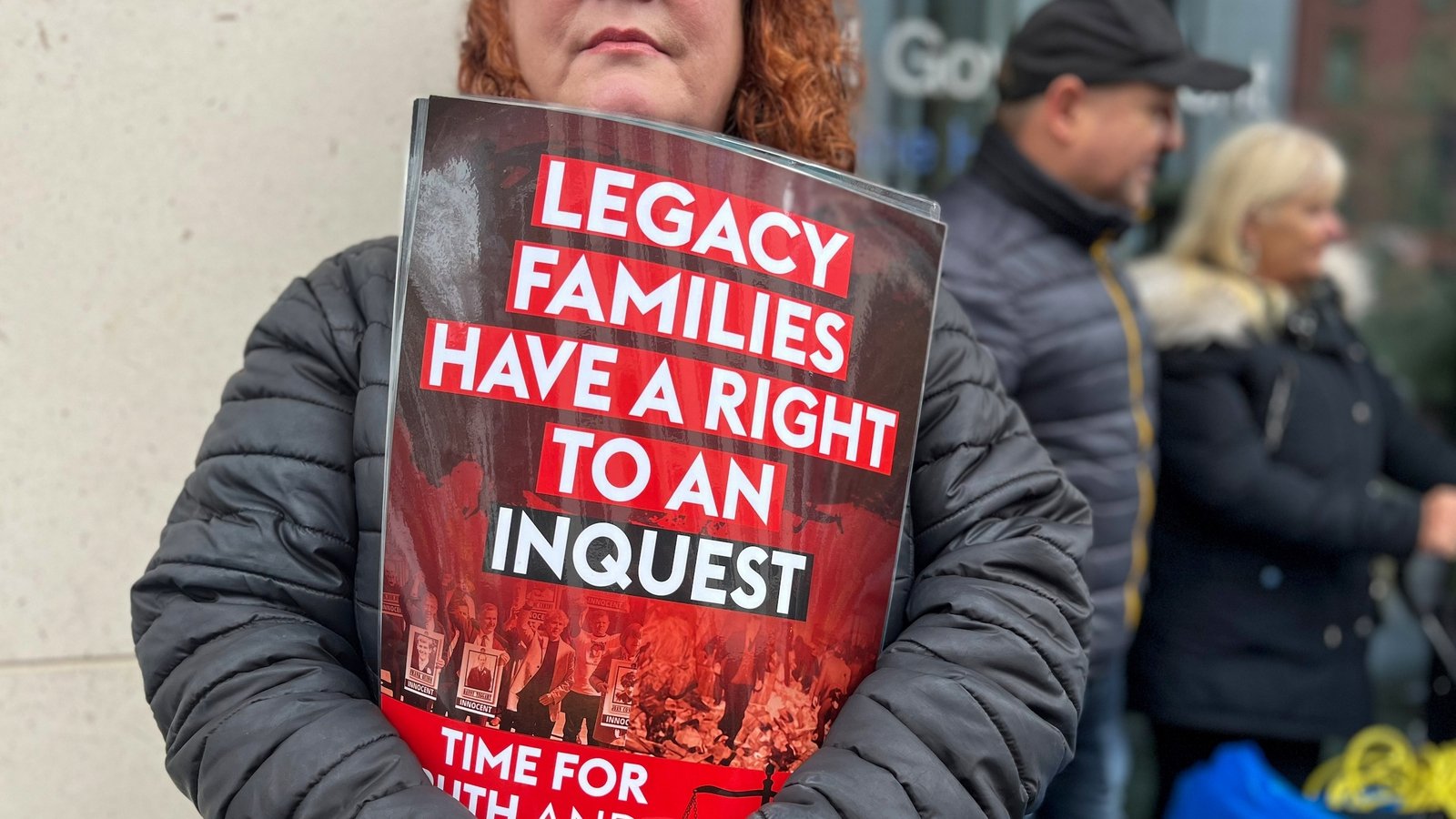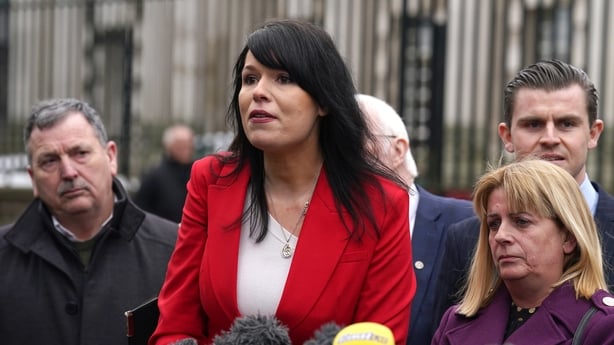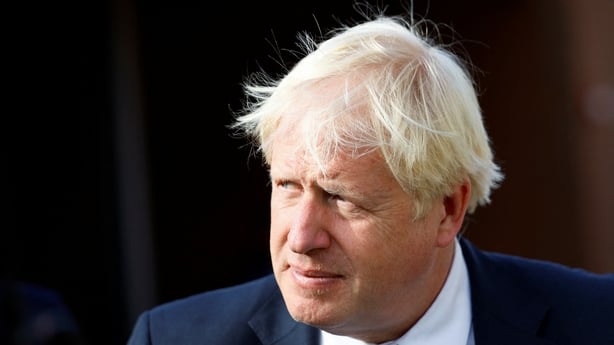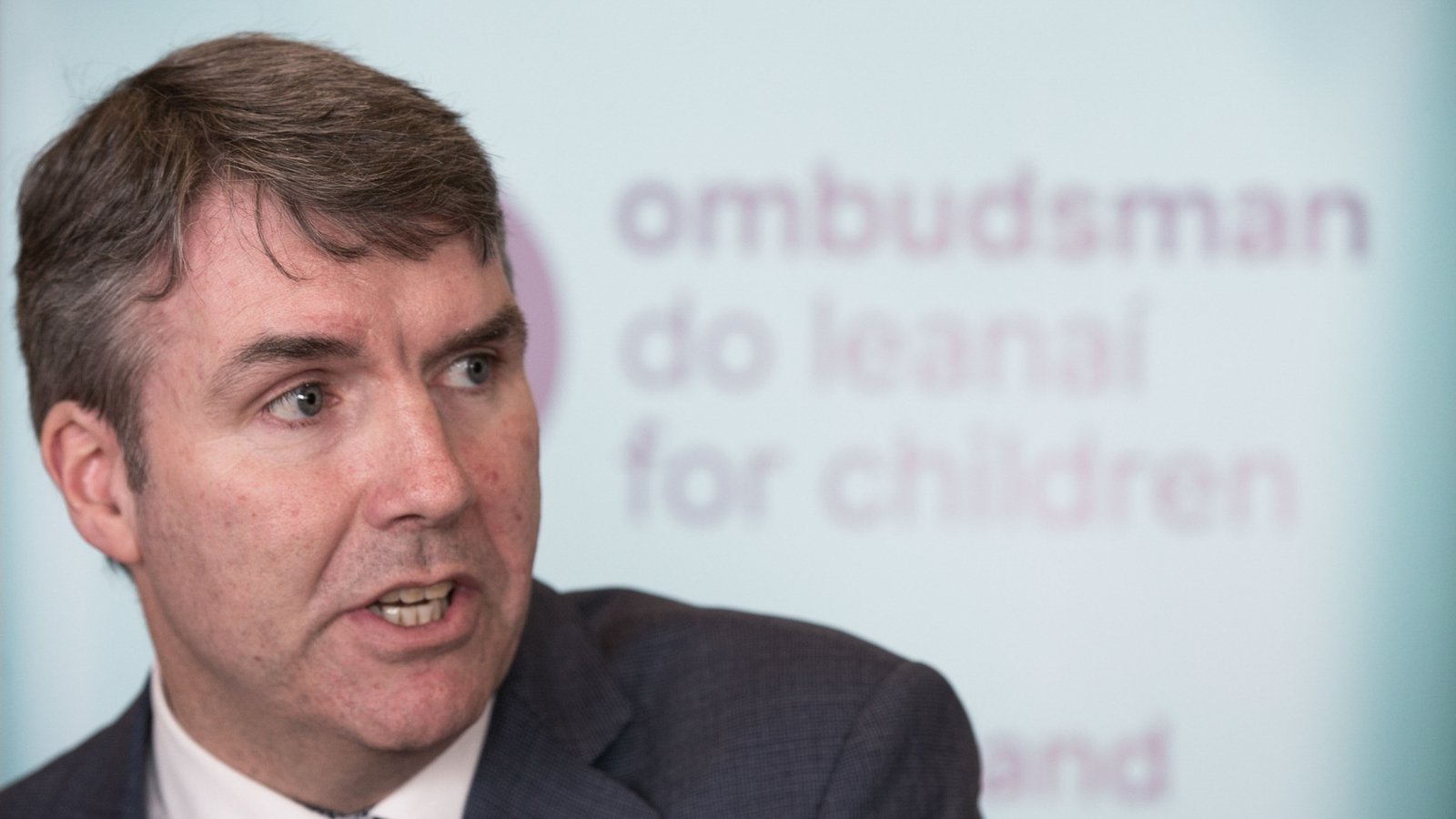The controversial issue uniting NI’s political parties

One issue unites all Northern Ireland’s political parties as they battle for votes in the British general election being held on Thursday.
The British government’s hugely controversial legislation to end all investigations into killings during the Troubles is opposed by all of them, as well as all the main churches and victims’ groups.
The Legacy Act, which came into effect on 1 May, has caused a huge rift between London and Dublin with the Irish Government taking a case against the UK in the European Court of Human Rights.
The legislation ended all criminal investigations, inquests and civil court actions in relation to Troubles killings.
It set aside a deal on legacy that had the support of the Irish Government and four of Northern Ireland’s main political parties – Sinn Fein, the DUP, Alliance and the SDLP.
The Stormont House Agreement of 2014 included a proposal for an Independent Historical Investigations Unit to investigate all unsolved Troubles-related killings.
If the widely anticipated victory for the British Labour Party comes to pass, the legacy landscape could change dramatically.

Labour leader Keir Starmer has vowed that if he is the next British Prime Minister, that legislation will be repealed.
The party’s manifesto is very clear, stating that the legislation “denies justice to the families and victims of the Troubles”.
It adds: “Labour will repeal and replace it, by returning to the Stormont House Agreement, and seeking support from all communities from all communities in Northern Ireland.”
That has been welcomed by the WAVE Trauma Centre, which represents people bereaved or injured through the Troubles throughout the island of Ireland and further afield.
Its Chief Executive Sandra Peake said: “We have had ongoing engagement with Labour over the last number of months.
“We’ve been very heartened by our engagement with them in relation to listening to people, to giving respect to people, to hearing what they have to say, and I’m talking about those of are bereaved and injured by the conflict.
“They have said that they will repeal and that’s one of the most important things that we can hope for.
“It’s been tortuous for families because families really have seen any of their concerns disregarded.”

Grainne Teggart, deputy director of Amnesty International in Northern Ireland, said there is an expectation amongst victims that a new British government will take a very different approach.
She said: “The next UK government will have the opportunity to quickly repeal this Troubles act, we know that victims have the expectation that that’s what they want to see.
“Particularly around inquests, the next UK Government can quickly give back to victims what this Troubles act removed so we can see the inquest process get underway again whilst we engage in discussions around legislating for the Stormont House Agreement and what that they look like.”
Former British prime minister Boris Johnson effectively ripped up the Stormont House Agreement when he took unilateral action aimed at protecting former British soldiers from prosecution, but it also applied to republican and loyalist paramilitaries.
Professor Kieran McEvoy, from the school of law at Queen’s University in Belfast, explained: “Boris Johnson was basically being driven by the desire to secure an amnesty for British soldiers, an amnesty had already been introduced in Britain for soldiers who served in Iraq and Afghanistan.
“That’s what happened and that unified all of the political parties. Throughout the years of negotiation here, no one ever asked for an amnesty, no one tabled it, so Boris Johnson just imposed it and then in very Boris Johnson style he said let’s call that reconciliation.”

The reconciliation element is the Independent Commission for Reconciliation and Information Recovery.
It has been given a five-year lifespan to provide information to families, victims and survivors.
Headed by Northern Ireland’s former Lord Chief Justice Declan Morgan, it was originally intended that it could offer conditional amnesty in return for co-operation and information.
That part of the legislation has been ruled unlawful by a judge at the High Court in Belfast.
However, Ms Peake said families still have serious concerns and would also like to see that aspect of the Legacy Act changed.
She said: “The commission that has been set up, the run up to it, the establishment of it, the way that the government looked at, demonstrating scant regard for the criticism of it, doesn’t bode well for it.
“Essentially today it’s sitting with a huge credibility issue, so I hope there will be a fundamental change from Labour.”
That assessment is shared by Prof McEvoy, who has spent the past decade advising victims groups and others engaged in the legacy debate.
He said: “For a lot of the families, as far as they’re concerned that was a Boris Johnson invention in order to secure an amnesty for British soldiers, knowing full well an amnesty would also apply to the paramilitary actors.
“So you can’t really blame families, survivors and victims organisations who say that the mechanism is too tainted to even look at rejigging it.
“That mechanism lacks public credibility with the key stakeholders which are victims and survivors.”
Read more: Key questions answered about new body investigating Troubles deaths
A ruling by a High Court judge in Belfast that the immunity from prosecution provision of the Legacy Act is unlawful is being appealed by the British Government, with judgement expected in the autumn.
Campaigners said they hope the law will have been repealed before then.
Ms Teggart said: “It’s critical that the next UK government repeals the Troubles act with the degree of urgency that’s required.
“In the first one hundred days of a new government there must be clear signals that there are legislative moves on this and also we must see that the next UK government is sending a clear signal that rights and the rule of law matter and that they will be respected, protected and upheld.”
The Irish Government announced just days before Christmas that it is taking an inter-state case, mounting a legal challenge to the UK’s Legacy Act in the European courts.
The move prompted an angry response from the British government but was widely welcomed by campaign groups and political parties in Northern Ireland.
Prof McEvoy believes prompt delivery by Labour on its manifesto promise could persuade the Irish Government to withdraw its legal challenge.
But he also expects Dublin to come under pressure to do more on legacy as unionist politicians and some victims’ groups have criticised its approach.
He explained: “I think they’ll definitely want to see the legislative colour of Labour’s money, I can’t imagine the Irish Government giving that card up lightly.
“And so therefore I think that’s the sort of sensible landing zone where you return to Stormont House Agreement overall and the Irish Government are being seen to step up and responding sympathetically to some of the asks that are coming from unionist politicians and unionist victims’ groups.
“And also victims’ groups in the south, so the Dublin Monaghan families for example, you know that there should be a landing zone where grown-ups are stepping up to the plate on both sides of the border.”




